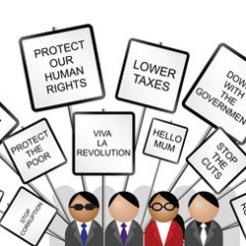The Charity Commission has this week proposed that charities report campaign spend and public service income. David Ainsworth worries political forces are at work.
I have very mixed feelings about the Charity Commission’s recent proposals to ask charities to report their campaign spending, public service income, and income from private donations.
On one side, these would be quite interesting things to know. I wouldn’t mind finding this stuff out, and it would be quite useful for the sector itself to know.
But on the other side, why have they picked out campaign spending and public income? The Commission says it wants this information to improve transparency for donors, but I don’t see much drive from donors to have this information.
I just worry that there are political forces nudging on the Commission to act this way, including William Shawcross, the chair, who has repeatedly expressed distaste for non-voluntary funding.
I worry that there is a drive to suggest that some types of charity are better and purer than others – that those which campaign and deliver contracts are somehow sullied – and that this is part of a process of stigmatisation.
Perhaps I’m being paranoid, but it seems that recently, lots of people seem to want to tell charities what to do and what to be. In the last week alone, different people have told me that charities shouldn’t campaign, deliver contracts, own property, pay staff, have investments or charge fees.
I’ve had it with these people, to be honest. In the last few years I’ve listened to a lot of pompous windbags talking about what other people should be allowed to do with their own money, as if people who spend their whole lives working for fairness and equality need advice from some privileged pillock who’s given it ten minutes thought.
Sometimes, I see where the thinking starts. There are those in the sector, after all, who think service delivery organisations are a very different beast to voluntary organisations, and say we should call them something different. For a while, I wondered whether they were right.
Then I wondered the same thing about schools. Then museums and zoos and theatres. Then grant-making foundations. Then I decided that personally, I’d throw out churches, because I personally don’t believe in God.
Eventually I realised that if we threw out everyone who wasn’t a pure voluntary organisation – everyone who someone objected to – we’d be left with no one inside the tent at all.
On campaigning, in particular, I think most of those who want to limit charity’s right to speak out have misunderstood.
The restrictions of lobbying by charities are not designed to stop charities campaigning on behalf of disadvantaged people. They’re designed to stop political parties and special interest pressure groups setting up to lobby and getting tax breaks.
The limitations are based on where you are coming from, not where you’re going to. If your first thought is for your beneficiaries, you should be able to say what you want about anyone, political party or otherwise.
In short, I think I’d like the Commission to collect information on spending and income in the annual return, because we shouldn’t keep it secret and besides, I’d like to know. But it should be all main types, not just some.
In the current climate, it would be a worrying step if one activity was singled out.









